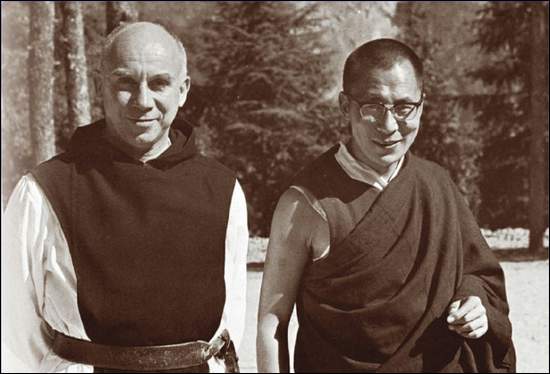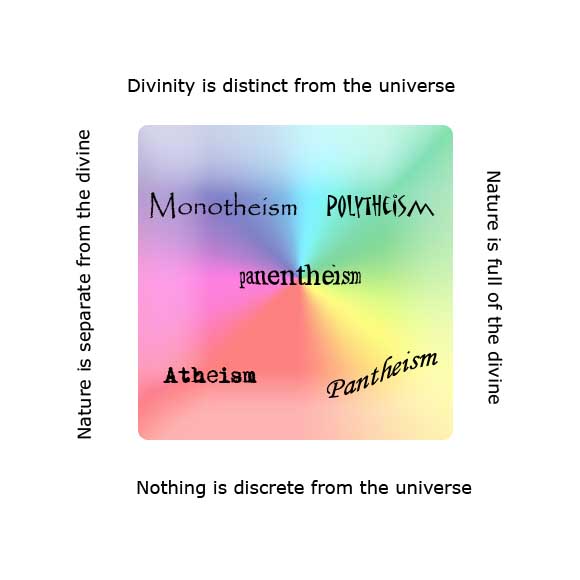
A reader in the UK sent me an email recently asking among other things “why God keeps himself hidden from the world?”
These were my thoughts in response:
We often think of God as a “Person,” or Supreme Being, separate from Creation, and following the logic of what “personhood” seems to convey, we might assume God has motives, will, desires, emotions, can change his mind, and can even be so temperamental as to destroy the world when really pissed off, as in the Flood story.
I have come to believe that God’s personhood, what I call “the personal metaphor,” is just that, a metaphor. Needless to say, it is used often in both testaments, and Jesus himself used it fairly consistently in referring to God. But it’s important to note that many other metaphors are used in the Bible. God is a fire, a spirit, a dove, a wind, a rock, light, and love itself. And whenever Jesus referred to the God as a person, he cast that person as “Father,” certainly to bring forth God’s benevolence.
The very word “persons” invites misunderstanding of Trinitarian doctrine. The Latin word personae could mean the characters in a play (the dramatis personae in theater programs), or even the masks the characters wore! God wearing three masks.
Eastern Orthodoxy developed the idea of the essence of God as being distinct from the energies of God, and maintains that the essence of God is beyond “beyond,” while God is known through his energies, and that we may unite with his energies in theosis.
Energy is force, and actually, I find “the Force” a more useful metaphor for God now. Not in every way, of course. I don’t believe that the Force is generated by living things and obeys commands, like in Star Wars, but I do believe that thinking of God as non-personal, and Force-like helps me.
For instance, if I were to ask why does gravity keep itself hidden, you would probably say it doesn’t, it’s just there, wherever there’s mass, there’s gravitation. We just need to notice how things act to notice its actions.
In a similar way, I don’t believe that God intentionally keeps teachings hidden, or himself hidden, (I’ll make a leap now and say Itself) It is everywhere, in all things, and discovering God is a matter of seeing things with spiritual eyes, of “loving God with all your heart, mind, and soul,” and “loving your neighbor as yourself.”
When we can do those things as Jesus said, we can see everyone as the child of God, and live in the kingdom of heaven, which is within us.
St. Hildegard of Bingen called God Haecceitas which means “This-ness,” and Meister Eckhart called God “Is-ness.” This titles are far beyond “personhood” as we think of it. This is a Force beyond forces. This is what creates and holds the Universe together, every Planck-instant of every second, everywhere that is. It is Everything, and beyond Everything, but more than anything else for our purposes, It is Love.







